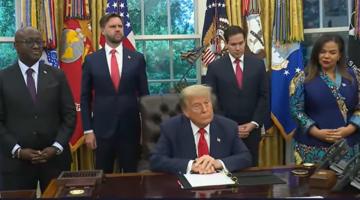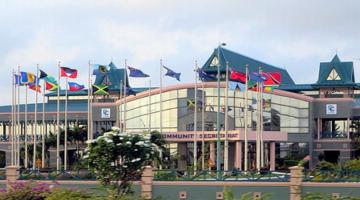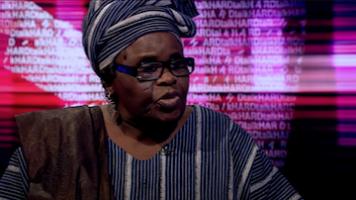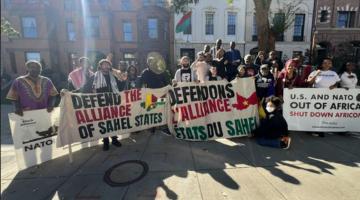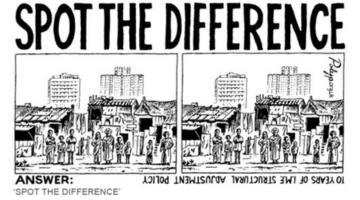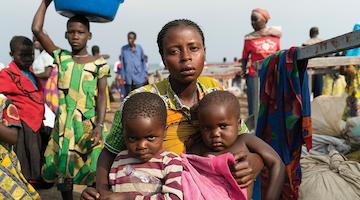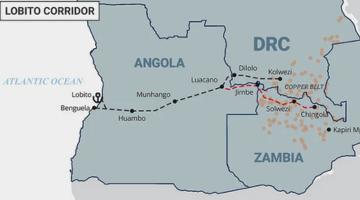EVD, COVID-19 and now Mpox further reveal how dependency is dangerous and deadly.
Geostrategic Public Health Analysis
In recent months the African continent has once again become the focus of an international threat related to infectious disease and its spread domestically and worldwide.
Thousands of Mpox cases have been detected in the Democratic Republic of Congo (DRC) along with lower numbers in other African states.
There have been a small number of cases in Western Europe triggering the production and distribution of vaccines designed to limit the spread of this highly contagious outbreak. This virus can cause serious illness, and in some instances can be fatal.
However, as in the instances of other epidemics, pandemics and global health emergencies in which Mpox has been declared by the United Nations, the way in which various countries respond to these crises is largely dependent upon the status and character of their national economy. As colonial, post-colonial and neo-colonial states, the territories of the African continent have experienced unequal growth and development directly emanating from the legacy of imperialism.
Geopolitical regions within the so-called Global South embody a disadvantage due to the historical trajectory that produced the systems of enslavement and direct colonial rule. Since the advent of many independence movements in developing states, many still remain under the economic yoke of the western capitalist countries.
Consequently, the disproportionate distribution of economic power has always impacted the capacity of the state to construct and maintain the necessary infrastructure to meet the demands of the people. Africa, with a rapidly rising population of which 70% are youth, requires innovative methods to supply the necessary health practitioners, medicines, treatments and equipped facilities to adequately address the routine and emergency needs of the people.
Therefore, when news articles appeared internationally in late August indicating that the 10,000 vaccines scheduled for shipment and distribution in Africa, which is the epicenter of the health emergency, had been delayed, it clearly illustrated the exploitative character of relations between the high-income countries and the Global South. This delay in vaccine access which could prove effective in eradicating the current strain of Mpox, some say is as long as two years.
This infectious disease has been in existence for decades, yet the current phase of transmission has accelerated to the point of attracting world attention. At this stage, preparations should be well underway to protect population groups that are more vulnerable in a public health crisis.
One source on the lack of Mpox vaccines in Africa emphasizes:
“Over 70 non-African countries already have access to vaccines. The delay in providing Africa with Mpox protection highlights serious flaws in how international bodies handle global health crises, according to recent warnings from medical experts and scientists. They argue that the World Health Organization (WHO) only initiated the process this month to enable African nations to easily obtain large vaccine quantities through international organizations. This is despite the disease being present in Africa for decades, and the process could have begun years ago, they informed Reuters. Mpox, a potentially fatal infection causing flu-like symptoms and pus-filled sores, spreads through close contact. The WHO declared it a global health emergency on August 14th, following the spread of the new “clade Ib” variant from the Democratic Republic of the Congo to other African nations. The prolonged wait for WHO approval for agencies to procure and distribute vaccines has left African governments and the Africa CDC to rely on vaccine donations from wealthy countries.”
Historical Background on Mpox and Other Diseases and Why It is Spreading Now
There have been at least four major public health emergencies, epidemics and pandemics which have had significant impacts on the African continent over the last four decades. During the mid-1980s, there was the detection of HIV-AIDS which caused millions of cases and deaths in several regions of the continent.
Beginning in 2014, the Ebola Virus Disease (EVD), a potentially rapidly spreading Viral Hemorrhagic Fever (VHF) was responsible for the deaths of approximately 11,000 people in mainly three West African states: Sierra Leone, Guinea and Liberia. This disease, like Mpox, had already been present in West and Central Africa. Nonetheless, the infections spread widely at this particular time between 2014-2016.
Of course, beginning in the early months of 2020, the coronavirus pandemic spread swiftly across Europe and the United Kingdom. The pandemic soon hit the United States where it sickened, hospitalized and killed more than one million people, outstripping any other state in the world.
During the period of the EVD pandemic and COVID-19, much controversy was generated over the role of the U.S. and its imperialist allies in addressing the crisis. In the case of EVD, the debates within the U.S. centered around bans on people traveling to and from the West African states involved. In the case of COVID-19, there were calls for bans along with hoarding of vaccines that were authorized for emergency use within North America and Western Europe.
According to the World Health Organization (WHO):
“The monkeypox virus was discovered in Denmark (1958) in monkeys kept for research and the first reported human case of Mpox was a nine-month-old boy in the Democratic Republic of the Congo (DRC, 1970). Mpox can spread from person to person or occasionally from animals to people. Following the eradication of smallpox in 1980 and the end of smallpox vaccination worldwide, Mpox steadily emerged in central, east and west Africa. A global outbreak occurred in 2022–2023. The natural reservoir of the virus is unknown – various small mammals such as squirrels and monkeys are susceptible.”
Over a two-and-a-half years period from January 2022 to June 2024, there were approximately 100,000 reported and confirmed cases resulting in 208 fatalities throughout 116 countries and territories. What is alarming is the rate of transmission being the highest on the African continent with the DRC as the most impacted.
As this situation unfolds the imperatives of better data collection and analysis, which would shed light on the reasons behind the current situation in Africa and internationally, could assist in deploying medical resources to contain the spread of the disease. These developments raise similar questions that surfaced four years ago at the height of the coronavirus pandemic.
Vaccine Production in Africa and Continuing Underdevelopment
During the early phase of the rollout and distribution of COVID-19 vaccines, African heads of state complained of the failure of the leading capitalist and imperialist states to share their supplies of vaccines with the continent. Conferences were convened at the aegis of the African Centers for Disease Control and Prevention (Africa CDC) in partnership with the WHO and other international agencies where discussions and proposals were launched aimed at increasing vaccine production within the African Union (AU) member-states.
Out of these deliberations, new plans for an African Vaccine Manufacturing Accelerator (AVMA) were advanced. The objectives were to build the necessary infrastructure so that by 2040, 60% of the vaccines needed by the AU member-states would be produced on the continent.
However, these plans are contingent upon the financial capacity of the AU member-states to set in motion this monumental project. As the renewed international debt obligations endured by various governments around the continent become more pronounced, these administrations are being subjected to the imposition of conditionalities from the International Monetary Fund (IMF) and the World Bank.
Recently in Kenya and Nigeria, the demands of international finance capital have dictated the lifting of subsidies on essential goods and services as the workers, farmers and youth are being shackled by higher taxes amid the decline in the value of local currencies. As a result of the rising cost of living due to hyperinflation, the workers and youth have engaged in mass demonstrations and industrial actions. Rather than seriously addressing the economic problems facing the majority of people within society, the state apparatus has utilized repressive measures resulting in the arrest, injuries and deaths of large numbers of people.
On a foreign policy level, the commitment of one leading vaccine manufacturer, Moderna, has been abandoned due to considerations related to the demand for certain products within the global markets. Moderna cited the decline of orders for COVID-19 vaccines as a factor in the firm’s decision to abandon the project in Kenya.
The British medical journal, The Lancet, reported on the change in priorities by Moderna noting:
“When the agreement for the vaccine manufacturing plant was signed in March 2022, Moderna promised to invest $500 million in the mRNA plant that would annually produce 500 million doses of Africa's crucial vaccines. To support the Moderna facility, the Kenyan Government created a Special Economic Zone, enabling the facility to have tax benefits. The Pharmaceutical Society of Kenya, an organization representing pharmacists in the country, attributed the cancellation to the dire state of the country's healthcare system, emphasizing regulatory shortcomings that are hindering competitiveness in global vaccine markets and medicine development. ‘Let it be clear: Moderna's withdrawal is not just a setback; it highlights the significant shortcomings in our regulatory oversight’, the Society said.”
Consequently, the ongoing grip of imperialism over the economies of African states must be broken in order for the public health priorities of the continent to be met. Alternatives are desperately needed to launch the necessary development programs to improve the status of public health within the AU member states.
Abayomi Azikiwe is the Editor of Pan-African News Wire.



